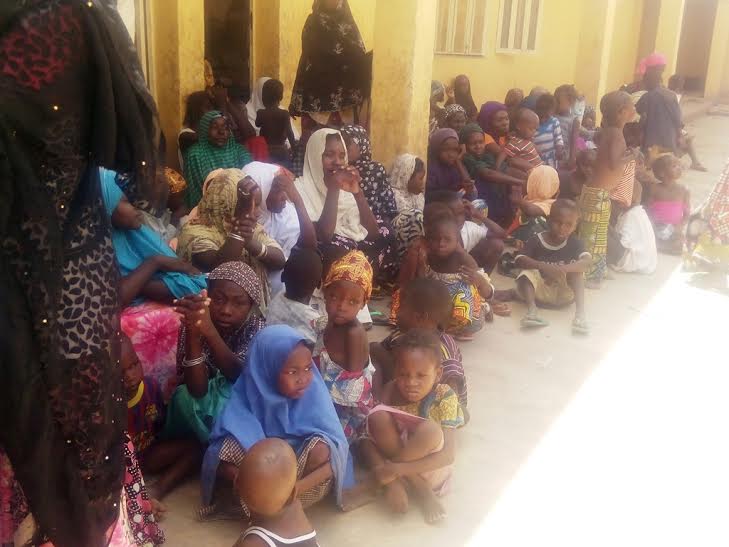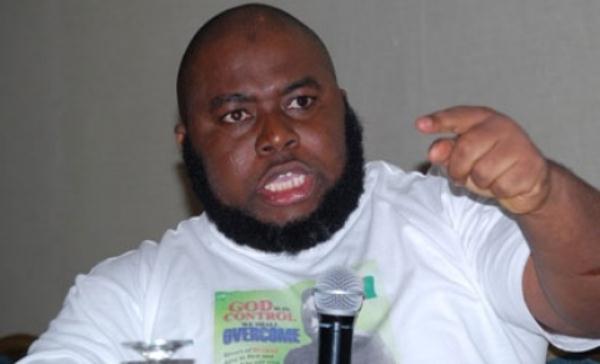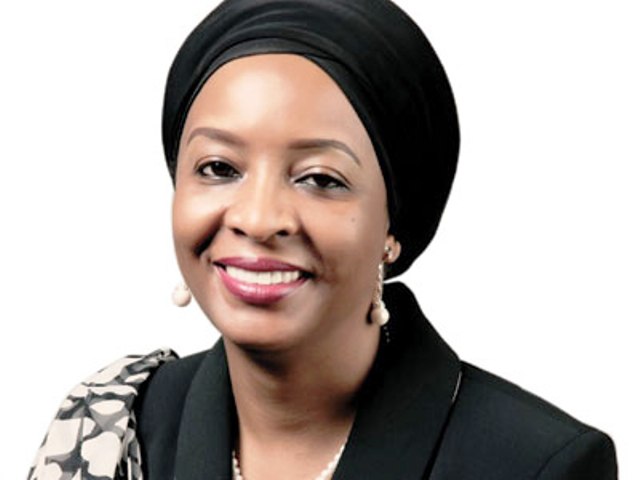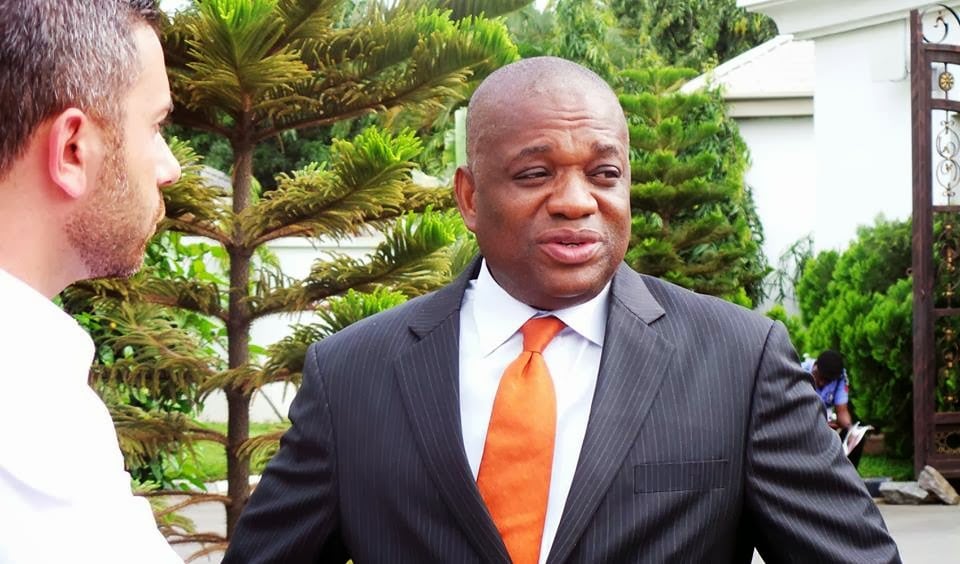All of the experiences cannot be told – at least not in words – but a few of these predominantly Kanuri women and girls from Gumsuri, a village in Borno state, Nigeria, gave a peep into their “bedtime with captivity”.
While TheCable visited, those of them who could utter their harrowing experiences in words, did so. Others yearned in deeds and in groaning beyond words, underscoring the extent of their agony.
They shared their pain, torture, hope, despair and hope again. They spoke about how their days broke at night, how salvation came at a time when hope had worn really thin.
FLOGGING FOR REJECTING EXTREMISM
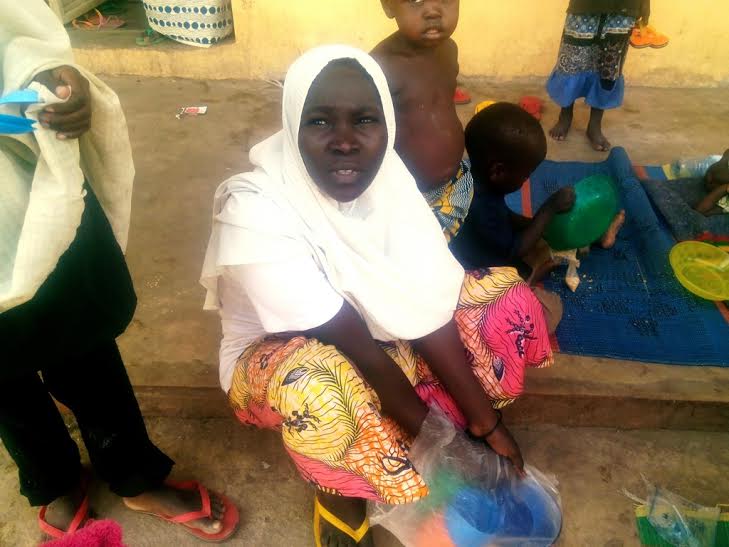
The women and girls, rescued by the Nigerian army in May, were particular about incessant flogging by the Boko Haram fighters who compelled them to join the sect’s religion.
Advertisement
Asked why she was still being flogged after admitting that she was a Muslim, Iyagana Mallum said she did not know what religion it was that she was asked to join.
“It was certainly not Islam,” she said. “We were flogged to join their religion, but I didn’t agree. Every time we said no to the religion, we were flogged.”
Another rescued woman who simply identified herself as Lydia said she was flogged for rejecting the “religion of hate”. Lydia, a Christian who was visibly trying to erase the images torture in a bid to restore her humanity, was full of disgust for the sect, even to the mere mention of “Boko”.
Advertisement
“The Christians among us were forced to pray the Islamic way. If you didn’t pray, they would beat you,” another rescued girl said.
“I was taught to pray the Islamic way, I can pray that way now. I don’t pray that way anymore; there is a church on camp that I now attend.”
DAYS WITHOUT FOOD
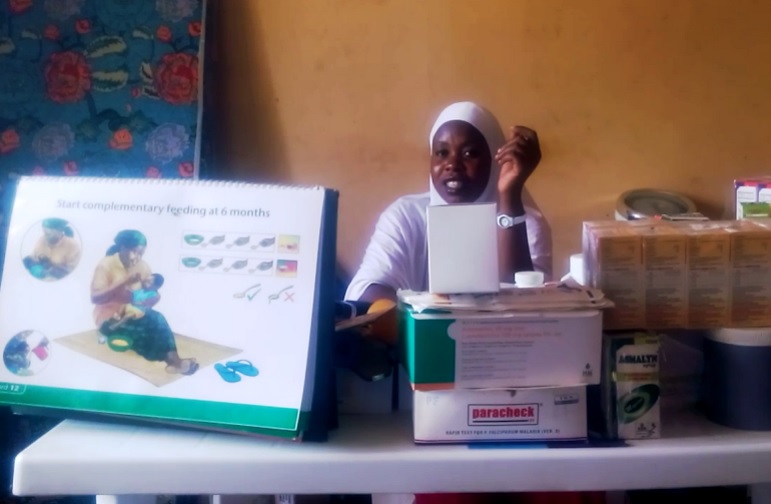
The rescued women and girls also said they were poorly feed, eating just maize for a period of five months. Some said they ate once a day, others twice – but one of the nurses in charge of their medical recovery confirmed to us that some of them did not eat for five days.
“Some of them would say that they did not eat for five days. We have been treating them and they are gradually recovering,” she said, confirming that most of the girls came in with ulcer.
Advertisement
“I was taken by Boko Haram and have been with them for five months, moving from bush to bush,” one of the ex-captives confirmed.
“They were bringing food for us to cook: Tuwo masara, made of maize was all I ate for five long months. We ate only maize, nothing else.”
HIDDEN PREGNANCIES
Earlier, it was reported that 214 of the newly rescued women and girls were pregnant, having been subjected to sexual slavery for five months.
“Already, many of them are undergoing screening for various diseases, infections including HIV/AIDS and about 214 of those already screened were discovered to be at various stages of pregnancies, some visibly pregnant and some just tested pregnant,” Babatunde Osotimehin, a professor and executive director of the United Nations Population Fund (UNFPA), had said.
Advertisement
However, just about four of the girls (names withheld) had come out to the medical centre to register for ante-natal to get proper care.
Two of the girls were 20 years old, while the other two were 18 and 30 years old. Others who were pregnant on camp were said to be “hiding their pregnancies”.
Advertisement
“Some of them don’t want to show that they are pregnant,” Zainab Jangawe, a nurse in charge of the girls, told TheCable.
EVERYONE HAS LOST SOMEONE
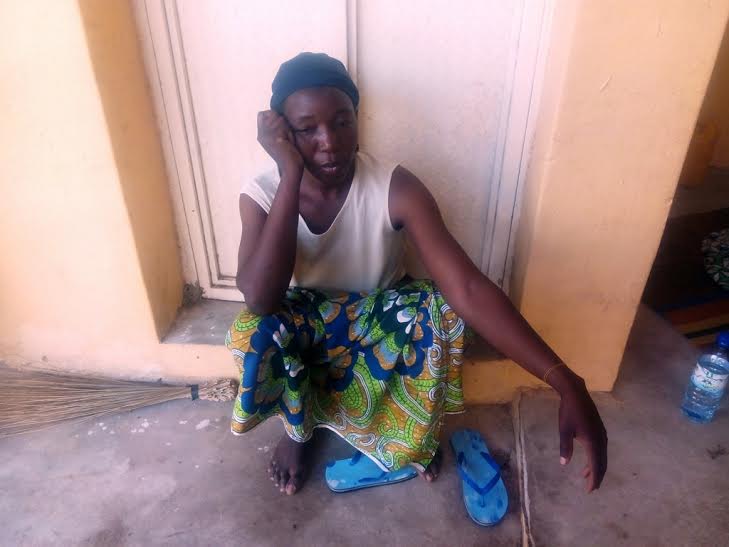
Two hundred and seventy-five women and girls were said to have been rescued and sent to the camp, while some 1,000 others were previously living in the internally displaced persons (IDP) camp at Malkohi.
Advertisement
Of all those who spoke with TheCable, only Tony Oloruntoba did not lose any member of his nuclear family. Still, he lost his entire home and business. Every other person had lost someone dear.
Iyagana Mallum lost the child she was nursing prior to her abduction, and of her husband, she said: “I don’t know where he is, whether he is alive or dead. He was taken away. His name is Mustapha Haji.”
Advertisement
Naomi, a 21-year-old girl who was married to Hassan Thomas, also said she did not know the whereabouts of her husband; he had been displaced by Boko Haram. Before then, Naomi had lost her entire family to activities unrelated to insurgency.
Lamin Musa, Mama and Lydia also confirmed the death of their husbands. Most of these young women were widowed in their prime.
STAMPEDE AND DEATHS
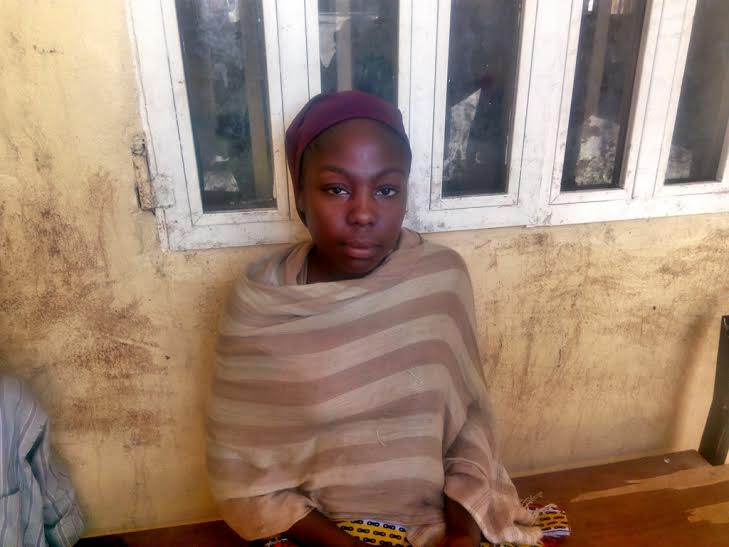
Since February, the Nigerian military and the multinational force had become fierce on Boko Haram, routing them from many of their camps and hideouts. As the battle intensified, Boko Haram could no longer move the girls and women around at will.
The initial hide-and-seek game played by the sect on the military could no longer be kept, as the military was gaining an upper hand.
One of the girls, who confirmed how the sect kept pushing them around, detailed her journey to eventual freedom.
“We were moved from Peta to Lassa to Gwoza, from Gwoza back to Peta, then from Peta back to Sambisa where the military eventually found me.”
Zahra Umoru took it a step further, when she said the sect always knew when the military was coming.
“We don’t know how Boko Haram gets its information, but they always know when the soldiers are coming. If there’s something like that, they just tell us to pack our things and run,” she said.
Eventually, the military outwitted Boko Haram, leading the sect to forcefully eject the women and girls from their camps, which in turn led to stampede and more deaths.
“The Boko Haram fighters were stoning us to leave, while we were running. We passed some crooked paths, some died due to stoning; some of the children died due to a stampede as we ran,” Mallum said.
“We were more than 300 in the bush, but Boko Haram members were more, they had small huts in the bush, where they hid. While we ran, I carried one (of my children) and guided two who could walk to the escape.”
DAYBREAK AT NIGHT
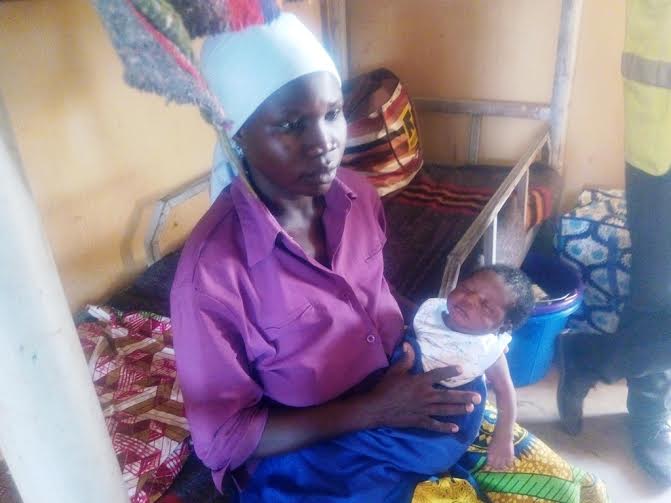
When they were finally free from the sect, with bodies of the fallen along their path, the women and girls hid in the forest, preparing for what could be the worst.
Many of them had given up on living; the trauma was too much to bear. Their hopes of rescue even when they had been rejected by Boko Haram had worn too thin. Some of them “just waited for death”, but day broke at night. Rescue finally came.
“They were stoning us to leave, as they themselves ran from the military,” one said. “We ran into the bush (a part of Sambisa forest), where we waited till we were eventually discovered by the military.”
Musa went through all these hardship in the latter months of her pregnancy, delivering her baby, Bintu, less than 24 hours to rescue.
When asked what should be done to Boko Haram, Mallum said they should be left to God,
“What can we do? We can only leave them to God.”
But a woman who had refused to speak interrupted her, saying: “They should be killed.”

